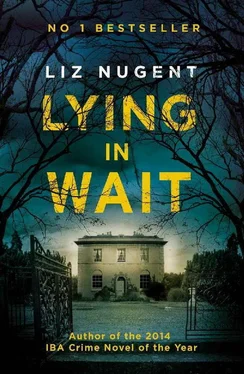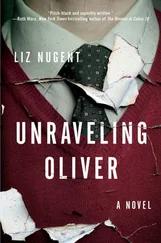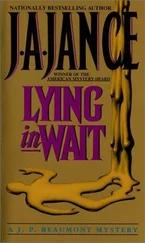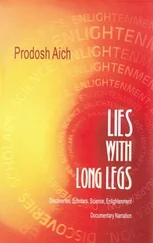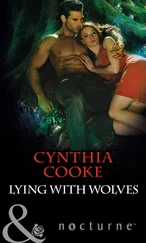My father squirmed for a moment and said rattily, ‘Yes, yes, of course he will.’ He gave me a manly playful punch on the shoulder. I tried not to wince, not from the pain but from the insincerity of it.
‘Cheers! Happy birthday!’ said my mum as she raised her glass, and we all clinked glasses.
I met my father’s eyes and I could see that he was trying to look at me in a genuine way just for that briefest moment, trying to see who I was. I held his gaze. A moment of understanding passed between us in which I could see some decency and he could see his son beneath the layers of flesh. The moment faded though, when the phone rang. Mum went out to answer it.
‘It’s that girl!’ she called from the hallway. I could hear the heavy sigh in her voice.
Dad threw his eyes to heaven in exasperation. ‘It’s Christmas Day !’ As if there was a law that you couldn’t use the phone on Christmas Day.
‘It’s my birthday,’ I reminded him. He remembered and smiled indulgently at me. I felt again the knot of anxiety in my stomach. He looked so damn benign, but I knew the truth.
The phone call from Helen was brief.
‘Happy birthday! And Christmas! What did you get?’
I listed the gifts I’d received.
‘Is that all? I thought you would get more than that.’ Helen thought that a big house equalled rich equalled extravagant. It is rarely the case.
I could hear the yelling of her brothers and loud pop music in the background.
‘Mum looped the fucking loop and got Jay and Stevo a drum kit. The mad bitch.’ Jay and Stevo were six and eight years old respectively. Then all I could hear was a deafening clash of cymbals, and Helen and two other voices roaring, ‘Shut up!’
My mother put her head around the cloakroom door and gave me her ‘Get off the phone’ look. Conversation was more or less impossible at Helen’s end anyway because of the cacophony, so I bade her farewell. As I approached the kitchen, I could hear the clatter of them clearing up in there. Dad said, ‘What kind of moron rings on Christmas Day?’
‘Andrew, I don’t like her any more than you do, but for God’s sake can you just try and be nice to him for one day? It’s his birthday!’
‘What does she even see in him? The size of him. She’s no oil painting but—’
‘He is your son! Can’t you please—’
I coughed. I wanted them to know that I’d heard them. They both looked uncomfortable, and my father at least had the grace to be embarrassed. I had never heard him express his opinion about me so blatantly before. By now I felt hot and restless. I was all too aware of this scornful, sour, superior presence standing at the kitchen sink, looking out of the window, pretending Annie Doyle didn’t exist and wishing that I didn’t either. I hated him. I wished he were dead.
After Da had reported Annie’s disappearance to the guards, we expected news within a day or two, but it didn’t happen quite like that. We went to the station that Friday night, the 21st of November. Detective Mooney seemed to take our concerns seriously. We gave him descriptions of the clothes missing from her wardrobe.
‘Any distinguishing features?’ he said. I pointed to her mouth in the photograph. ‘And she wears an identity bracelet that she never takes off.’
‘So her name is on the bracelet?’
‘No, it just says “Marnie”.’
‘Is this Marnie a friend?’
Da glared at me. ‘Never mind about that. Marnie is someone she used to know. The name isn’t important.’
I know that the next day they interviewed the girls who lived in the house with Annie. I went to Clarks’s Art Supplies to ask if my sister had bought a painting set on the previous Saturday. I showed the girl behind the counter a photo of our Annie. Annie was pretty drunk in the photo, but it was the best one we had. It had been taken the year before at my uncle’s fiftieth birthday party. In all the other photos she had her hand over her mouth, obscuring her most notable feature. The guards had rejected all of those, but I knew Annie would be furious that we were putting out the photo she had tried to tear up. ‘I look like a bleedin’ mutant!’ she had said.
The girl in the art supplies place remembered Annie coming in weeks previously, examining the painting set and talking about coming back to buy it. She said she had suggested that Annie could leave a deposit, but she had said she would be back with the full price. It wasn’t surprising that Annie had never turned up. I was annoyed with myself for even hoping that she might have.
I wondered if she had travelled to London for an abortion. If she’d been pregnant, there is no way she would have risked being sent back to St Joseph’s. But if she’d gone to have an abortion, she would have packed a bag, and she would certainly have been home by now. In desperation, I spent a morning on the phone to all the hospitals in Dublin. None of them had any record of her or of anyone matching her description. Detective Mooney told me he had covered the same ground with the same results.
Ma spent all her time in the church, praying for Annie’s return, but Dessie and me took time off work to go out looking for her. We talked to the locals in the Viking. I thought they’d be more likely to talk to me than to Ma. We knew some of them to see. They all knew Annie, smiled when talking about her. ‘She’s some demon for the Jameson’s,’ said the barman, who, no doubt, had never refused her cash. They had wondered where she’d been. I asked if she’d ever been there with a boyfriend. One of her ‘friends’ looked a bit cagey then. ‘A few,’ she said, and Dessie got that mortified look and left the pub.
We went to her boss at the cleaning agency too. The guards had already talked to him by the time we got there, and he refused to talk to us, saying he’d already told the guards all he knew. ‘She’s a pain in the arse,’ was all he said. ‘I was going to fire her anyway.’
Three days after we had reported Annie missing, the guards got in touch with the landlord right before he was about to clean out her flat. He was furious apparently and ranted about lost rent. They searched it from top to bottom. And I think that’s when they began to take a different kind of interest in Annie.
On Wednesday the 26th of November, Detective Sergeant O’Toole rang and asked us to go to the station, Ma, Da and me. We all exhaled with relief. We convinced ourselves they’d found her.
At the station, Detective Mooney brought us into a small windowless room. There were only two chairs in it, and somebody went to get three more so that Da and I could sit down too. They wanted us all to be sitting down before anything was said. Ma got nervous then, clutching her rosary beads. ‘What’s all the drama for? Can you not just tell us where she is?’
Detective Sergeant O’Toole had been the person we’d been in touch with over the phone in the last few days, but none of us had met him. He was mid-thirties, a stocky build, but he had a shaving cut on his chin and one just under his left ear. I noticed these small things to distract myself from what I now knew was going to be bad news. I realized that if there had been good news about Annie, we would have been told over the phone. Mooney sat beside Detective Sergeant O’Toole on one side of the table and the three of us sat on the other. The table was old and battered, the size of a teacher’s desk. It looked like chunks had been carved out of it with penknives, and it had been graffitied with doodles of topless women and scrawls of ‘fuck the pigs’ and suchlike in pens and markers.
The detective had a file open in front of him. I couldn’t see what had been written down, but I could see the photo of Annie. We had put it up everywhere we could – on lamp posts and in shops, pubs and church porches.
Читать дальше
